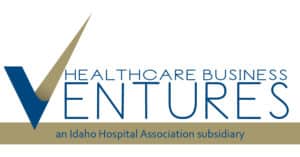
By Dr. Susan L. Glover, FACHE, Vice President, Consultant
I have had the privilege to be a healthcare executive for 25 years. Today, the C-suite is becoming more diverse. Achieving a successful interview is key to securing an executive position in the healthcare C-suite. Here are five tips to turn an interview into a new executive position.
What are hiring executives looking for, and what advantages or disadvantages do you have as a female executive leader?
Studies and personal experience demonstrate women leaders have higher levels of leadership effectiveness and creative competency in all dimensions and they demonstrate lower reactive impact compared to their male counterparts. The ability to demonstrate more reflective and less reactive behaviors is important in creating organizational resilience versus organizational resistance. This is particularly important in creating a culture that will support excellent performance.
Women tend to have a more cooperative, participatory style of leading while men tend to have a more “command and control style,” according to the American Psychological Association. They’re more task-oriented and directive, while women are more democratic. This is a skill and attribute which is important in the C-suite team. As a woman executive leader, do not be shy about leveraging this asset.
Present yourself as the best candidate by leading with your natural strengths.
As women executive leaders, we have natural gifts. An interview is the time to leverage these gifts. Your natural skills include leading through compassion, cooperation, inspiration, instinctual acumen, and the ability to prioritize.
Below are five tips to help you achieve a successful executive leadership position interview. The first three tips leverage your emotional intelligence and relationship acumen. You will also be able to convey the culture you can shape in an organization. Remember, you are interviewing the organization as well as being interviewed by the organization. Fit for you is just as important! Tips four and five relate to your competence and knowing the organization.
TIPS for Achieving a Successful Healthcare Executive Leadership Position Interview
- Do your research. When it comes to getting hired at an executive level, it is important to do your research on the organization with whom you are interviewing and the people with whom you will be speaking. At this level, hiring decisions often come down to cultural fit and chemistry. Doing some research on LinkedIn or the company website can allow you to understand the interviewer’s background and help create a connection.
- Get personal. Employers aren’t looking to hire someone who just wants to do a job and get a paycheck. Employers are looking for someone with passion for the organization’s mission and who will fit into the company culture. They’re looking for someone who they would enjoy working with every day. For this reason, it is important to sell yourself as an individual. Be sure to make your conversations feel real, get to know the people you’re interviewing with, and send thank you emails after the interview.
- Work on your storytelling skills. Storytelling is a great way to show your personality and highlight how well you will fit into the role for which you are applying. Stories are also much more memorable. Through a story, you can display your skills in action while potentially putting a smile on the interviewer’s face, thus creating an emotional connection.
- Have questions. There is a point in every interview where the interviewer asks you if you have any questions. This is your opportunity to learn more about the company. Don’t hesitate to ask about the company’s culture, the position, and the job expectations. The best way to ask your questions is by mixing them into the conversation. Doing it this way can make you seem more like a colleague. Getting to the conversation level in an interview is the goal.
- Refer to past correspondence. Finally, if you have had several interviews or conversations with the organization, you can refer to those in your interview. Referring to past conversations is a fantastic way to show your interest, but it should never be used to avoid answering a question. Referring to previous communications shows that you can facilitate discussions, which is an asset to a company looking for a leader.
It is critical to remember when it comes to applying for executive positions, experience and knowledge will only get you into the interview. Specifically, when it comes to hiring senior-level employees, the ideal candidate is someone who can fit in with the team and improve the company. These five tips will help you stand out from your competition.
Every woman executive experiences the Authority Gap — the percentage of male executives versus female executives in the C-suite — at some point in her life. Few ever see or hear someone acknowledge it. By recognizing and acknowledging what is happening, you can build your self-confidence, leverage your unique talents, and be a highly successful executive leader.
Dr. Susan Glover is vice president and consultant of HealthSearch Partners, susang@healthsearchpartners.com.
About HealthSearch Partners:
HealthSearch Partners is a nationally recognized healthcare executive search firm. We partner with mission-driven hospitals and health systems to find leaders who are focused on success. As a mid-sized firm, our senior search leaders work with clients throughout the engagement, accessing a larger pool of talent, to find the right candidate that is the right fit. www.healthsearchpartners.com.



